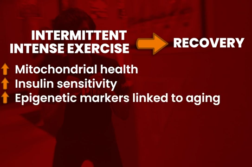ORLANDO, Fla. (Ivanhoe Newswire) — A 2016 survey found that 68 percent of Americans take a dietary supplement, and 78 percent have overall confidence that the supplement provides what is stated on its label. But many pills have been shown to provide no results at all.
What supplements do you take?
Magnesium keeps your heart steady and immune system strong, so you might think taking it as a supplement makes you even stronger. But a Harvard Medical School article states there is no evidence that it helps anything, and it’s best to get your magnesium from leafy greens and beans.
Another supplement you should not be taking is calcium. It might be doing more harm than good.
“There’s this paradox where dietary Calcium from food sources, seems to be associated with reduced risk, a lower risk of kidney stones, but Calcium from supplements actually increases the risk of kidney stones,” said Dr. Erin Michos, MHS, Associate Professor of Medicine and Cardiologist at Johns Hopkins University School of Medicine.
Researchers at Harvard also found that Ginkgo Biloba and Echinacea showed no benefit in clinical studies. So what should you take? Probiotics have had positive results in the treatment and prevention of a long list of ailments. And Vitamins B and D do improve your brain, bones, heart, and muscle development.
If you take a daily Multivitamin, there’s a good chance you’re wasting your money. One professor from the Harvard School of Public Health said that while there are no risks associated with Multivitamins, there are also no proven health benefits.
Contributors to this news report include: Hayley Hudson, Producer; Katie Campbell, Assistant Producer; Jamison Koczan, Videographer and Editor.
To receive a free weekly e-mail on Medical Breakthroughs from Ivanhoe, sign up at: http://www.ivanhoe.com/ftk



